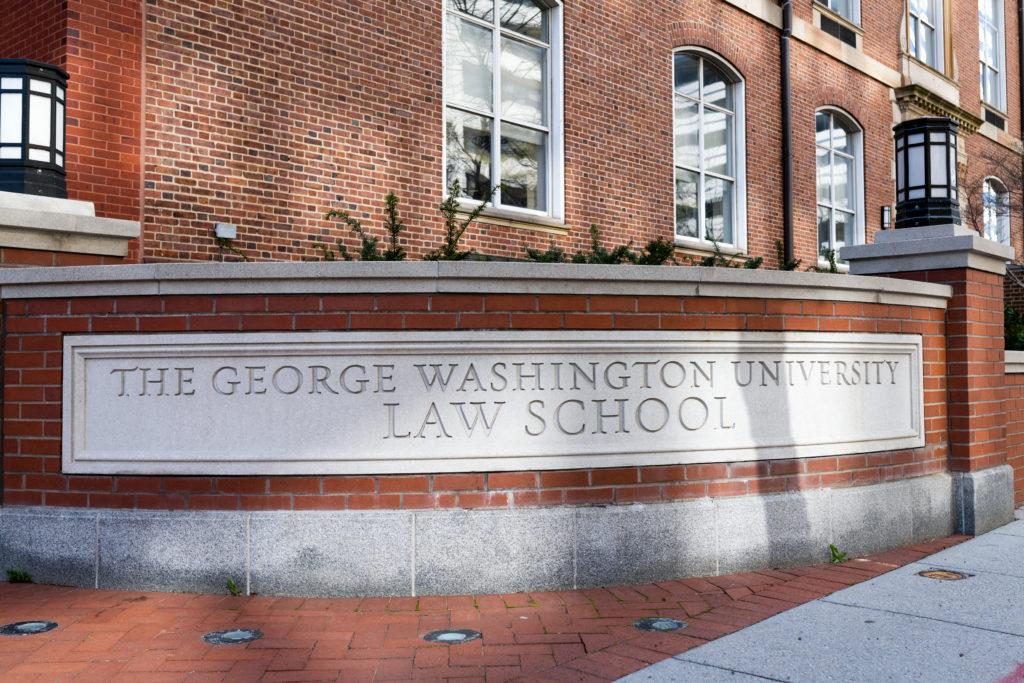Updated: April 29 at 8:51 p.m.
Law students in the international and comparative law program will be able to study two new master of law concentrations this fall.
The new master of laws concentrations – international human rights law and international arbitration, mediation, and other dispute resolutions – will provide students with specialized training and job experience in these fields, law school officials said. Faculty said the additions will enhance students’ competitiveness in the job market and prepare them for careers in law firms relating to human rights law or international arbitration.
Rosa Celorio, the associate dean for international and comparative legal studies and a professorial lecturer in international and comparative law and policy, said students taking these concentrations will be able to differentiate themselves from other candidates in their future fields with their specialized skills.
“They want to leave the law school not only with a general degree in international law but with a signal that they already have specialized training in a specific area,” she said.
The ICL program currently offers both one-year LLM and three-year Juris Doctor degrees, but the new concentrations are only for students pursuing the LLM degree, according to the law school’s website.
Celorio said law school officials observed through conversations that students have a strong interest in specializing in the type of coursework the concentrations will offer and said she hopes students will take advantage of the new opportunities to develop practical skills and experience in these areas of law.
“I personally feel that I’m training the future of international law, and I feel that as faculty members we have a responsibility to give students as many tools as possible and as much training as possible so they can shape and contribute to these fields,” she said.
Law students will be required to complete 10 credits for their chosen concentration, including a writing requirement and experiential credits like internships, the law school’s website states.
Celorio said many of the courses required for the concentrations like international litigation and international human rights of women are already part of the program, and officials plan to add courses on contemporary issues in human rights and international commercial arbitration.
“Basically, we’re solidifying and recognizing students that are specializing in those areas with the coursework we have, but we’re also opening a space to create new courses in these areas as well and to incorporate practitioners into the work of GW,” she said.
Celorio said the law school will offer a joint summer program with Oxford University that covers international human rights law for students in the concentration.
She said the law school’s proximity to many law firms and international organizations like the International Monetary Fund and World Bank will be instrumental for students in finding jobs or internships once they complete the program.
“Our D.C. location offers students the invaluable opportunity to directly observe and participate in the practical application of international law in the areas of human rights and arbitration,” she said.
Sean Murphy, a professor of international law, said the programs will allow students to “establish a credential” in these specialized legal fields in a shorter time period compared to other programs the law school offers like the JD degree.
“The faculty felt that a concrete signal to employers, through certificates of concentration that students had received such training, was a valuable way of allowing students to ‘market’ themselves,” Murphy said in an email.
He said future courses added to the new concentrations will benefit both JD and LLM students because most courses in the ICL program are open to those students.
“My hope is that we do even more with courses that provide experiential learning in these two areas, meaning that rather than just teach doctrine, we give students the opportunity for drafting mock pleadings, presenting mock oral arguments and advising fictitious clients,” Murphy said.
Dinah Shelton, a professor emeritus of international law, said the law school has always had faculty who are experts in international law, and she anticipates the new concentrations will “fit well” with the ICL program.
“We’ve always had a real strong program in human rights,” she said. “In fact, I think we’re ranked top 10 in the country in human rights, so it makes perfect sense to recognize that with a concentration.”
Shelton said she expects the current faculty to do an “excellent” job of teaching the new additions to the ICL program and providing students with the necessary skills and expertise for success.
“We have a lot of contact with international organizations which makes it possible for internships and opportunities for jobs after graduation,” she said.







